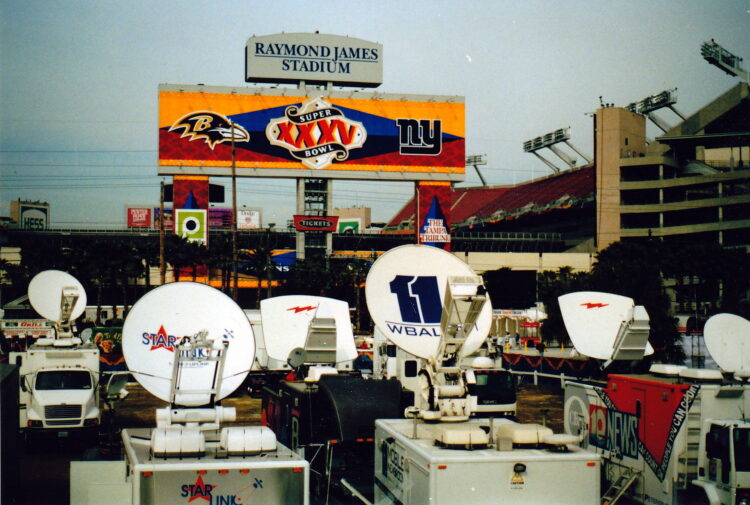
The world of sports is not only driven by the passion and skill of athletes, but also by the economic value that they bring to their respective teams and leagues. Some sports franchises have gained immense worth due to their successful track record, iconic players, and loyal fan bases. This article delves into the most valuable sports franchises in the world, exploring their position, worth, and factors that contribute to their significant valuation.
In recent years, the top-rated sports franchises have consistently emerged from a mix of American and European sports leagues, especially when it comes to football, both association (soccer) and American varieties, baseball, and basketball. These leagues have managed to generate substantial revenue through various streams, including ticket sales, merchandising, sponsorships, and broadcast rights. As a result, the value of these franchises has skyrocketed, making them coveted assets for individuals and corporations alike.
Understanding the worth of these franchises allows for a deeper insight into the business side of sports and showcases the immense influence that these teams have on their fans and the economy. In the following sections, we will take a closer look at the highest-ranking sports franchises, highlighting their most remarkable achievements and the elements that distinguish them from their competitors.
Top Franchises by Value
The Dallas Cowboys stand out as the most valuable sports franchise in the world, with a valuation of $5.7 billion, according to the Forbes list. This American football team has consistently topped the rankings in recent years, demonstrating its continued financial success and popularity.
Next in the list are the New York Yankees, valued at $5.25 billion. This Major League Baseball team has a strong fan base and a rich history, which contributes to its high valuation and position as one of the most valuable sports franchises globally.

The New York Knicks from the NBA represent the third most valuable sports franchise, with an estimated worth of $5 billion. Despite not having recent success on the court, the Knicks remain a powerful force in the financial world of sports and maintain a strong following.
In the world of association football, some of the most valuable franchises include:
- Real Madrid with a valuation of $4.75 billion
- FC Barcelona valued at $4.76 billion
- Manchester United with an estimated worth of $4.2 billion
These clubs are known for their worldwide fan base, performance on the field, and lucrative sponsorship deals, earning them spots among the most valuable sports franchises in the world.
It’s worth noting that the values of such franchises are continually evolving and fluctuating as market dynamics and team performance shift over time. Nonetheless, these top franchises consistently demonstrate impressive valuations and showcase the extraordinary financial potential of sports in today’s world.
Global Sports Market Analysis
Revenue Streams
The global sports market generates income from a variety of revenue streams, which can be broadly categorized as follows:
- Media rights: This includes the fees paid by broadcasters and digital platforms for the right to air live sports events, highlights, and related content.
- Sponsorships: Corporations pay for association with sports franchises, events, and athletes, in return for brand visibility and promotional opportunities.
- Merchandising: Sales of sports-related products such as apparel, footwear, and equipment are significant contributors to revenue.
- Ticket sales: Attendance at live sporting events is a major source of income for franchises and leagues.
- Licensing: Royalties are earned when a team or athlete’s intellectual property, such as logos and trademarks, are licensed for use on various products and services.

Factors Driving Value
Several factors contribute to the overall value of sports franchises, including:
- Market size: Teams based in large, wealthy markets generally have a leg up on the competition when it comes to generating revenue and enterprise value.
- Fan base: A passionate and dedicated fan base can help boost a team’s financials through increased sales of tickets, merchandise, and other related products and services.
- Competitive success: On-field performance is a significant factor in determining a team’s financial worth. Successful teams not only generate more revenue from multiple sources, but their brand value also tends to grow at a faster rate.
- Stadium and facilities: State-of-the-art arenas and training facilities help in attracting top talent, enhancing fan experience and, ultimately, increasing the value of a franchise.
- Ownership and management: A well-run organization with stable ownership and forward-thinking strategies can significantly impact the value and future prospects of a sports franchise.

In summary, the global sports market is a multi-billion-dollar industry with numerous revenue streams driving the valuations of sports franchises worldwide. Factors such as market size, fan support, on-field performance, and infrastructure play crucial roles in shaping a team’s overall financial worth.
Evolution of Franchise Values
Historical Trends
In the past few decades, the value of sports franchises has seen a significant increase. The world’s 50 most valuable sports teams are now worth a combined $222.7 billion, reflecting a 30% increase compared to the previous year. This rise in value is the largest in the past five years. The NFL remains at the forefront, with 30 of its teams making the list of the most valuable sports franchises.
The Dallas Cowboys, for instance, have consistently topped the list of the most valuable sports teams. According to Forbes, they are now valued at $5.7 billion. The New York Yankees stand as Major League Baseball’s most valuable franchise, with a worth of $5.25 billion.
These increases in franchise values can be linked to several factors, such as the growth of fan bases, stadium enhancements, increased sponsorship deals, and the escalation of media rights.
Influence of Media Rights
One of the primary drivers of franchise value growth is the escalating value of media rights. In today’s digital age, streaming platforms and television networks are engaging in fierce competition to secure exclusive broadcast rights for the biggest sports leagues and events. As a result, the cost of media rights has skyrocketed in recent years.
These lucrative media rights deals enable teams and leagues to generate substantial revenue, which ultimately boosts the overall value of franchises. Additionally, the increased exposure through various media channels helps to expand fan bases and attract more sponsors, thereby increasing the franchise’s marketability and profitability.
To summarize, increased franchise values in the sports industry can be attributed to historical trends, such as the growing popularity of various sports leagues and the influence of media rights on revenue generation and overall marketability. The dynamic evolution of franchise values is likely to continue as the sports industry constantly adapts to changing market conditions and technological advancements.
Regional Perspectives
North America
In North America, the National Football League (NFL) remains the dominant force in terms of franchise valuations. The Dallas Cowboys are consistently recognized as the most valuable sports franchise in the world, with an estimated value of over $4 billion in 2016. Major League Baseball (MLB) holds its ground with the New York Yankees being one of the most valuable teams, worth $5.25 billion in 2022. Commercial television networks have primarily driven sports broadcasting, but streaming services like Amazon Prime, YouTube TV, and Apple TV+ have begun to make significant inroads through deals with leagues worth hundreds of millions of dollars.
Europe
European football (soccer) teams are among some of the most valuable franchises worldwide. Specifically, the English Premier League, La Liga, Bundesliga, and Serie A boast teams that consistently rank high in terms of worth. Examples include Manchester United, FC Barcelona, and Real Madrid. These clubs often generate significant revenue from broadcasting rights, merchandise sales, ticket sales, and lucrative sponsorship deals, all contributing to their financial standing.
Asia-Pacific
Sports franchises in the Asia-Pacific region have their unique characteristics. Cricket dominates in countries like India, where the Indian Premier League (IPL) has made tremendous strides in terms of franchise valuations, partly due to enormous advertising, sponsorship, and broadcasting rights deals. In Japan, the Nippon Professional Baseball (NPB) league is popular, and its teams have gained considerable value over the years. The region’s sports market is diverse, with other competitions like the Australian Football League (AFL) and the Chinese Basketball Association (CBA) also making significant strides in capturing audiences and growing their franchise values.
Challenges and Opportunities
Economic Challenges
The most valuable sports franchises face various economic challenges, including fluctuating revenues from ticket sales, sponsorship deals, and broadcast rights. Teams need to adapt to shifts in consumer preferences, which may affect merchandise sales and other sources of income. Additionally, economic downturns or recessions can lead to reduced disposable incomes, directly impacting the clubs’ overall revenue streams.
To mitigate these risks, franchises should focus on diversifying their revenue streams and exploring alternate revenue-generating opportunities. Building strong relationships with sponsors and partnering with businesses in various sectors could help in cushioning the economic challenges.
Technology and Innovation
Technology plays a vital role in the success of modern sports franchises. From player analytics to fan engagement, teams must stay ahead in leveraging new technologies to maintain their competitive advantage.
Player Analytics: The use of data and analytics in player recruitment, training, and performance tracking is critical in helping teams make evidence-based decisions. It also provides valuable insights into injury prevention and player evaluation. Teams should invest in tools and platforms that enable the proper collection and analysis of player data.
Fan Engagement: The widespread adoption of smartphones and social media offers teams various opportunities to connect with their audience. Franchises should embrace digital platforms and mobile apps to offer live streaming, real-time updates, highlights, and exclusive content to increase fan loyalty and engagement.
Stadium Experience: Technological advancements also allow teams to enhance the in-stadium experience for fans. From improved connectivity via Wi-Fi networks to implementing virtual reality experiences, franchises must invest in technologies that enrich the matchday experience for fans.
In conclusion, both economic challenges and technology present a myriad of opportunities for sports franchises to explore and capitalize on. By being proactive in addressing these issues, the most valuable sports franchises can leverage their resources to ensure their sustained growth and success in the industry.
Conclusion
In summary, the most valuable sports franchise in the world is the Dallas Cowboys, with an estimated worth of $8 billion. They have held their position as the top valuable team since 2016, and their prominence in the NFL is a testament to their strong fan base and lucrative business ventures.
The New England Patriots follow closely behind, with a valuation of $6.4 billion, highlighting the influence and commercial appeal of the NFL as a whole. Moreover, the steady increase of the average value for the top 50 most valuable sports teams (9.9% higher than last year and 55% higher than five years ago) indicates a growing interest in various sports disciplines and their profitability.
On an organizational level, the most valuable sports empire is Liberty Media, which holds properties such as the Atlanta Braves, Formula 1, and the Drone Racing League. With an impressive valuation of $17.20 billion, Liberty Media exemplifies the diversification potential in sports ownership and industry growth.
Through the analysis of these franchises’ worth and performance, it becomes apparent that the sports industry is a dynamic and continuously expanding market. The success of teams like the Dallas Cowboys and organizations like Liberty Media can serve as inspiration for future investors and entrepreneurs aiming to make their mark in the world of sports.
